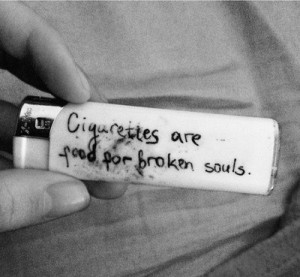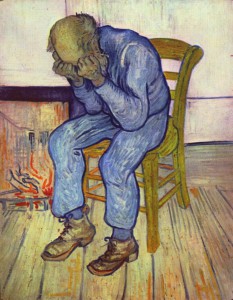Death is such an inevitable part a life. We shouldn’t be shocked when it comes for us, yet we are. The unfortunate truth is, everyone will one day lose someone, or something they love. Coping with the loss of a loved one isn’t easy, but it is necessary.

Not everyone will take solace in knowing that their loved one is finally out of pain or that they are no longer emotionally suffering. But some will. Those who do will still grieve and mourn the deceased, but they will also be comforted by what they believe comes after death. There is resilience in having a system of faith.
No matter your belief, grief is a common season that people deal with. As mentioned in the last blog post, there is no right or wrong way to mourn. You might experience denial, anger, confusion, sadness, and a lack of enthusiasm. That’s okay. Given the nature of the vital role your loved one played in your life, their passing will greatly effect you. Give yourself time to get re-adjusted to your life.
Feeling like you’re on an emotional rollercoaster is completely normal. One day you might feel okay and the next day you’ll be devastated all over again. This will fade over time. If it doesn’t, you might be suffering from complicated grief.
Mayoclinic.org defines complicated grief as such: For some people, feelings of loss are debilitating and don’t improve even after time passes. This is known as complicated grief, sometimes called persistent complex bereavement disorder. In complicated grief, painful emotions are so long lasting and severe that you have trouble accepting the loss and resuming your own life.
For a list of symptoms, click here.
If you believe you are suffering from complicated grief or you’re just having a hard time dealing with your loss, speaking with a life coach can be just what you need. Together we will sort through your emotions, redirect your thinking, and get your life back on track. You will never really get over losing someone you love, but with help, you can address your loss from a healthy perspective.



 If hatred is prolonging your grief and not allowing you to move on, please come see me. Bad mouthing the dead and internalizing such anger will not bring closure to your emotional wounds. It will not help you sleep at night. It might provide a moments worth of relief, but that will pass and guilt will come again. Hypnotherapy can help you let go. You can begin to assess your abusers actions and make a logical decision to no longer be controlled by them, even after they’ve passed.
If hatred is prolonging your grief and not allowing you to move on, please come see me. Bad mouthing the dead and internalizing such anger will not bring closure to your emotional wounds. It will not help you sleep at night. It might provide a moments worth of relief, but that will pass and guilt will come again. Hypnotherapy can help you let go. You can begin to assess your abusers actions and make a logical decision to no longer be controlled by them, even after they’ve passed. Some people are unhappy because of a bio-chemical imbalance. Somewhere down the line, they’ve compromised themselves, or they’ve entered a structure (relationship, contractual agreement, or professional position) that has forced them to live a life that’s contrary to their inner self. These people could potentially suffer from mild, chronic, or acute unhappiness. Chronic unhappiness potentially directs its host to a life of avoidance by means of addiction while acute unhappiness forces its host into a world of depression.
Some people are unhappy because of a bio-chemical imbalance. Somewhere down the line, they’ve compromised themselves, or they’ve entered a structure (relationship, contractual agreement, or professional position) that has forced them to live a life that’s contrary to their inner self. These people could potentially suffer from mild, chronic, or acute unhappiness. Chronic unhappiness potentially directs its host to a life of avoidance by means of addiction while acute unhappiness forces its host into a world of depression. Addiction, contrary to what is thought, can be a learnt behavior. In a family where words are kept behind glasses of Bourbon, there’s a chance drinking could occupy the space reserved for conversation. Drugs are used for coping with the stress of family, work, identity, and everyday life. Addictions are a physical manifestation of an inner mewing. For many addicts, the use of drugs was a form of self-medication, but mutated into self-mutilation.
Addiction, contrary to what is thought, can be a learnt behavior. In a family where words are kept behind glasses of Bourbon, there’s a chance drinking could occupy the space reserved for conversation. Drugs are used for coping with the stress of family, work, identity, and everyday life. Addictions are a physical manifestation of an inner mewing. For many addicts, the use of drugs was a form of self-medication, but mutated into self-mutilation. A combination of Clinical Hypnosis and Life Coaching not only cures depression, but tackles the
A combination of Clinical Hypnosis and Life Coaching not only cures depression, but tackles the